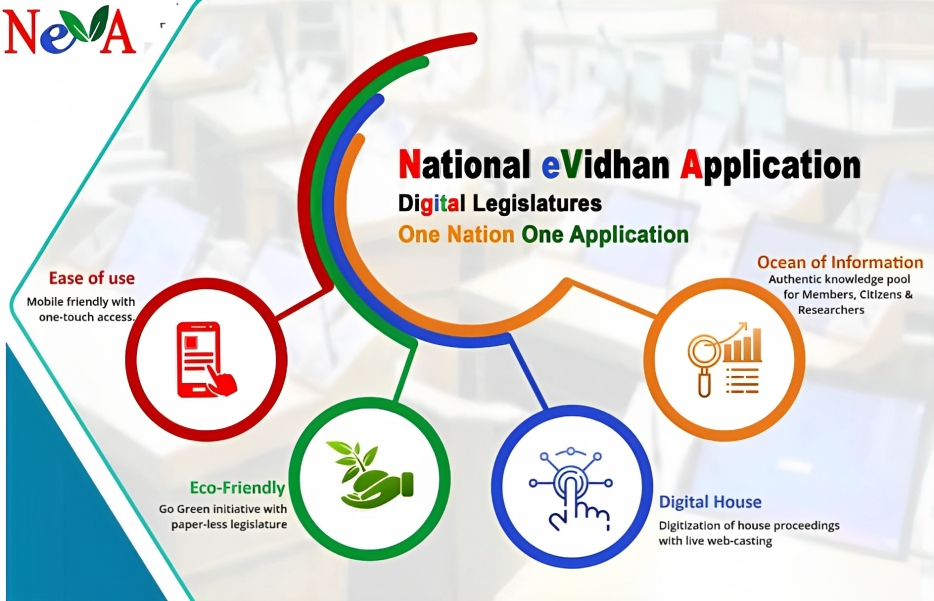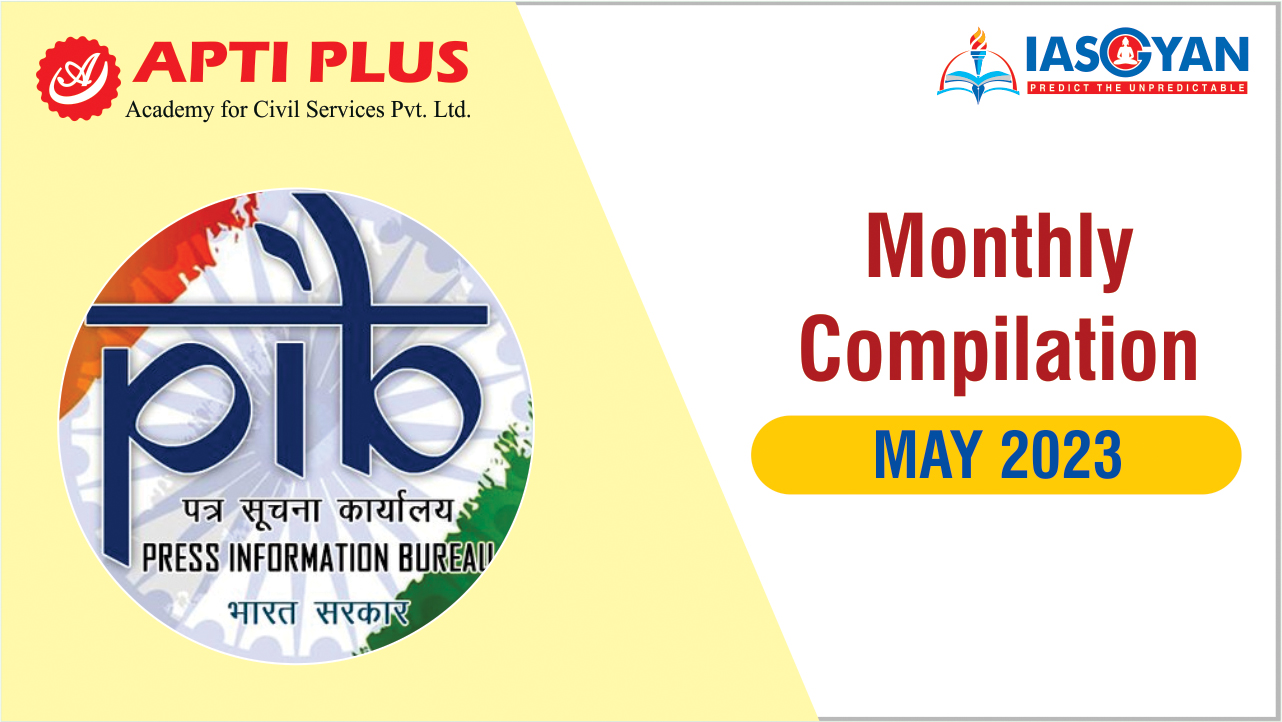Description

Copyright infringement not intended
Context: To promote the National e-Vidhan Application (NeVA) and share best practices among the states, the Ministry of Parliamentary Affairs (MoPA to organize a two-day National Workshop on NeVA on 24th and 25th of May, 2023.
Details
- The workshop will bring together speakers and participants from various stakeholders, such as state governments, central ministries, legislative assemblies, legislative councils, IT experts, media and civil society.
- The workshop is expected to provide a platform for learning, sharing and networking among the participants. It will also help in creating awareness and generating interest among the public about NeVA and its benefits for democracy.
Objectives of the workshop
- To showcase the achievements and benefits of NeVA in improving the transparency, accountability and efficiency of the legislative process.
- To discuss the challenges and opportunities in implementing NeVA across all states and union territories.
- To exchange ideas and experiences on various aspects of NeVA, such as technical features, security issues, capacity building, citizen engagement and feedback mechanisms.
- To identify the areas of improvement and innovation for NeVA and formulate a roadmap for its future development.
National e-Vidhan Application (NeVA)
- The National e-Vidhan Application (NeVA) is a system for digitising the legislative bodies of all Indian states and the Parliament through a single platform on which house proceedings, starred/unstarred questions and answers, committee reports etc. will be available.
- The Ministry of Parliamentary Affairs (MoPA) is the nodal ministry for the implementation of NeVA in collaboration with the state governments and the Ministry of Electronics and Information Technology (MeitY).
- MoPA has been providing technical and financial assistance to the states for adopting NeVA and enhancing their e-governance capabilities.
- The funding is through Central Sponsored Scheme; 60:40 and 90:10 for North East & hilly States and 100% for Union Territories (UTs).
- It has been developed on the theme of ‘One Nation – One Application’.
Objectives
- To make the functioning of parliament and state legislatures paperless and more efficient.
- To enable online submission of questions, answers, bills, reports and other documents related to the parliamentary proceedings.
- To provide live streaming of the sessions and access to various information and reports for the public.
Significance
- It provides easy access to all information related to parliamentary work for the legislators, such as bills, motions, debates, speeches, etc.
- It enables online submission of questions, notices and other documents by the legislators, and instant feedback from the concerned ministries or departments.
- It reduces the cost and time involved in printing, storing and distributing parliamentary documents for the government.
- It facilitates better coordination and communication among various stakeholders involved in the legislative process, such as ministries, departments, committees, etc.
- It enhances the transparency and accountability of the legislative bodies by making their functioning more accessible and visible to the public.
- It enables citizens to participate more actively in the democratic process by providing them with various channels of feedback and interaction with their representatives.

Challenges and limitations
Lack of awareness and readiness
- Lack of awareness and readiness among some legislators and staff members about the benefits and usage of NeVA.
- This may require intensive training and orientation programmes to familiarise them with the system and its features.
Lack of uniformity and standardisation
- Lack of uniformity and standardisation among different legislative bodies in terms of their rules, procedures, formats and terminologies.
- This may pose difficulties in integrating and harmonising their data and information on NeVA.
Lack of adequate infrastructure and connectivity
- Lack of adequate infrastructure and connectivity in some states and regions, especially in remote and rural areas.
- This may affect the availability and accessibility of NeVA for some legislators and citizens.
Lack of adequate security and privacy measures
- Lack of adequate security and privacy measures to protect the data and information on NeVA from unauthorised access, misuse or manipulation.
- This may require robust encryption, authentication and backup systems to ensure data integrity and confidentiality.
The way forward for NeVA is to overcome these challenges and limitations by adopting a collaborative and participatory approach involving all stakeholders, such as MPA, state governments, legislative bodies, ministries, departments, committees, etc.
Steps need to be taken
- Developing a common framework and guidelines for standardising and streamlining the rules, procedures, formats and terminologies of different legislative bodies on NeVA.
- Providing adequate funds and resources for upgrading and maintaining the infrastructure and connectivity required for NeVA in all states and regions.
- Conduct regular audits and reviews of the security and privacy measures of NeVA to ensure compliance with the best practices and standards.
- Creating awareness and sensitisation campaigns for promoting NeVA among legislators, staff members and citizens through various media platforms.
- Encouraging feedback and suggestions from legislators, staff members and citizens on improving NeVA's functionality, usability and user-friendliness.
Conclusion
- NeVA is a visionary project that has the potential to transform the functioning of India's legislative bodies by making them more digital, efficient and transparent. By addressing its significance, challenges and way forward, NeVA can become a model for other countries to emulate and follow.
|
PRACTICE QUESTION
Q. How can NeVA (National e-Vidhan Application) transform the functioning of legislative houses in India? What are the main benefits and challenges of implementing this digital platform? What are the steps needed to ensure its successful adoption and sustainability across all states and union territories?
|

https://pib.gov.in/PressReleasePage.aspx?PRID=1926749











